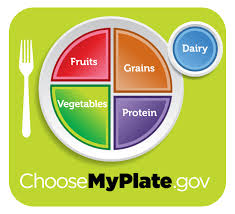Culver’s of Lombard to Support Special Olympics
 Culver’s of Lombard, 1155 S. Main St., is partnering with Special Olympics Illinois this August with several in-store activities planned, most notably the 4th annual ‘ButterBurgers & Badges’ fundraising event on Thursday, August 30, from 4-8 p.m.
Culver’s of Lombard, 1155 S. Main St., is partnering with Special Olympics Illinois this August with several in-store activities planned, most notably the 4th annual ‘ButterBurgers & Badges’ fundraising event on Thursday, August 30, from 4-8 p.m.
ButterBurgers & Badges will feature local law enforcement officers providing table service for guests dining inside, and also delivering the chain’s famed burgers and fresh frozen custard desserts to those visiting the drive-thru.
The officers will collect tips for their service, which along with one dollar for every purchase of any size Culver’s Concrete Mixer, will benefit Special Olympics. In addition, local Special Olympics athletes will be on-hand to meet and greet guests and sign autographs.
ButterBurgers & Badges is part of a month-long initiative by more than 30 Culver’s locations across Chicagoland that includes participating stores proudly displaying ‘Change for Champions’ donation canisters near counter areas.

 Dan Sincavage, a Co-Founder of Tenfold and current Chief Strategy Officer shared with Healthy Lombard the following article:
Dan Sincavage, a Co-Founder of Tenfold and current Chief Strategy Officer shared with Healthy Lombard the following article: According to the Centers for Disease Control and Prevention, an estimated 3.5 million people in the United States have hepatitis C. What exactly is it, and why should you care about hepatitis C? Corinna Dan, the Viral Hepatitis Policy Advisor at the HHS Office of HIV/AIDS and Infectious Disease Policy, is here to explain. Read Corinna’s interview to learn how you can get hepatitis C and whether some women are at higher risk.
According to the Centers for Disease Control and Prevention, an estimated 3.5 million people in the United States have hepatitis C. What exactly is it, and why should you care about hepatitis C? Corinna Dan, the Viral Hepatitis Policy Advisor at the HHS Office of HIV/AIDS and Infectious Disease Policy, is here to explain. Read Corinna’s interview to learn how you can get hepatitis C and whether some women are at higher risk.
 Kids ages pre-school through high school are invited to visit the Lombard Cruise Night Kids Corner Area on Saturday, August 18 from 6 – 9 PM and earn Flat Apple participation tickets for great prizes like a mini iPad, a bike, sports equipment, gift cards, etc.
Kids ages pre-school through high school are invited to visit the Lombard Cruise Night Kids Corner Area on Saturday, August 18 from 6 – 9 PM and earn Flat Apple participation tickets for great prizes like a mini iPad, a bike, sports equipment, gift cards, etc. Joshua Steckler, owner of Push Fitness, a personal training studio located in Schaumburg specializing in weight loss, muscle toning, and nutrition shared in the Daily Herald Newspaper that if you want to permanently take control of your weight, your best option may be to eat more — more often, that is.
Joshua Steckler, owner of Push Fitness, a personal training studio located in Schaumburg specializing in weight loss, muscle toning, and nutrition shared in the Daily Herald Newspaper that if you want to permanently take control of your weight, your best option may be to eat more — more often, that is. Lynn Dugan
Lynn Dugan Clare Ansberry asked in the Wall Street Journal’s Turning Point section, “Are baby boomers anti-social?”Here is her answer: Members of the baby boom generation, especially those 55 to 64 years old, are less socially engaged than people the same age 20 years ago, according to researchers at the Stanford Center on Longevity.
Clare Ansberry asked in the Wall Street Journal’s Turning Point section, “Are baby boomers anti-social?”Here is her answer: Members of the baby boom generation, especially those 55 to 64 years old, are less socially engaged than people the same age 20 years ago, according to researchers at the Stanford Center on Longevity. While kids are enjoying the long days of summer, the new school year is fast approaching.
While kids are enjoying the long days of summer, the new school year is fast approaching.
